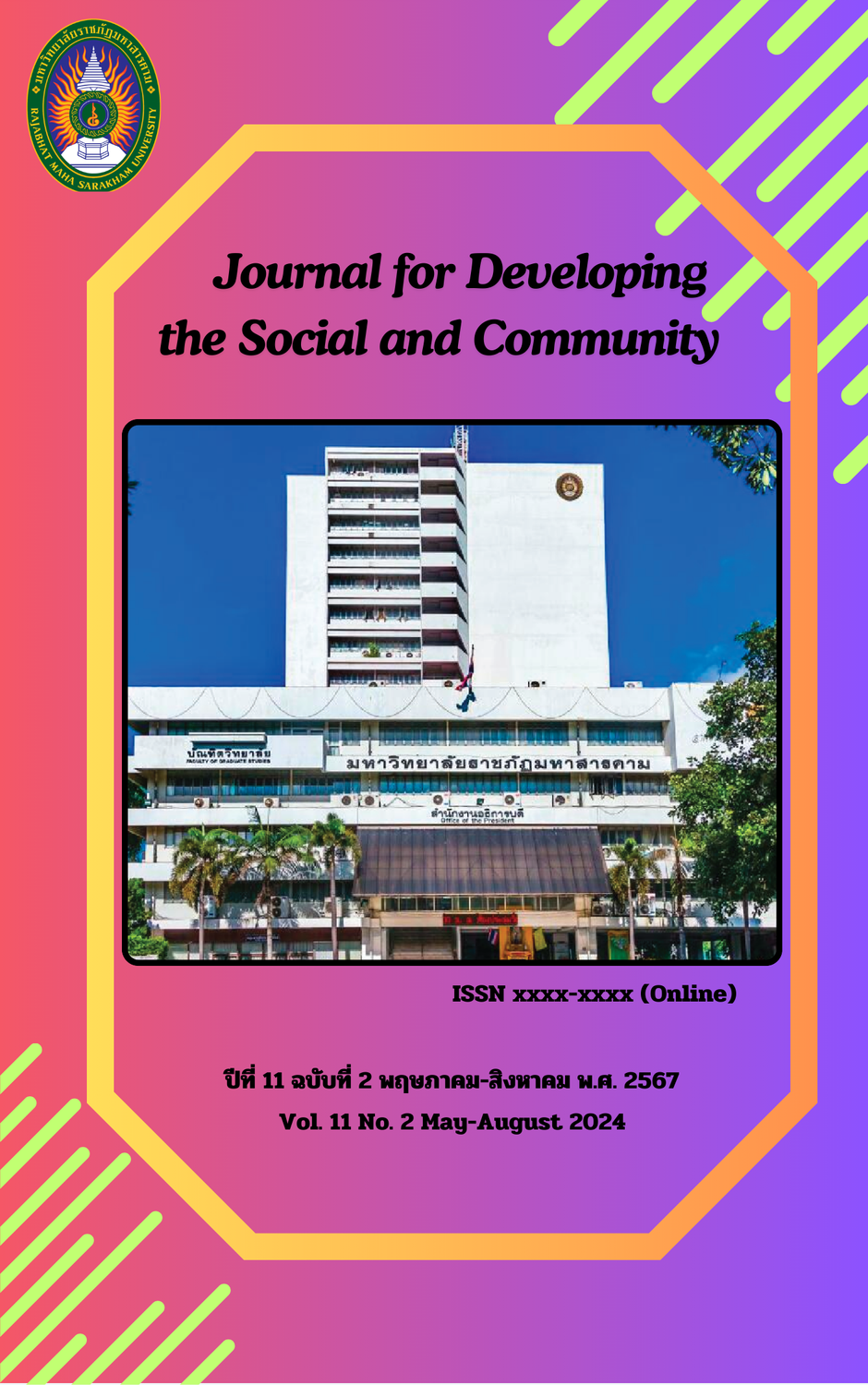The Development of Student Well-Being Model for Primary Education under the Office of the Basic Education Commission
Keywords:
Development Model, Development Model, Student HealthAbstract
This research aims to study 1) the components and indicators of the health status of elementary school students affiliated with the Basic Education Commission's office, 2) the current situation and desirable conditions for developing the health status of elementary school students affiliated with the Basic Education Commission's office, 3) create a model for the development of the health status of elementary school students affiliated with the Basic Education Commission's office, and 4) examine the results of using the model for the development of the health status of elementary school students affiliated with the Basic Education Commission's office. This research employs a research and development format divided into four phases. In Phase 1, the study of components and indicators of the health status of elementary school students is conducted through document synthesis and group interviews. Content analysis is employed for qualitative data. Phase 2 involves studying the current situation and desired conditions for the health status of elementary school students, utilizing a sample group consisting of 321 individuals, including school administrators and teachers. Data is analyzed using means, standard deviations, and an index to prioritize essential needs. In Phase 3, a model and guide for implementing the development of the health status of elementary school students are created. This is achieved by studying three exemplary schools and formulating the development model, which is then evaluated by nine qualified individuals through expert group seminars. The assessment includes considerations of suitability, feasibility, and utility. Data analysis involves calculating averages and standard deviations for quantitative data and content analysis for qualitative data. In Phase 4, the study assesses the results of implementing the model for the development of the health status of elementary school students. The model was tested with 42 teachers and 70 students using questionnaires and data collection tools post-implementation. Data is analyzed by calculating averages and standard deviations for quantitative data and conducting content analysis for qualitative data, interview data, observational study data, Professional Learning community data.
The research findings are as follows: 1) The components and indicators of the health status of elementary school students consist of 4 components and 27 indicators, categorized into 4 dimensions: physical health, mental health, social health, and intellectual health. The appropriateness of each component is at its highest level. 2) From the study of the current situation, desired conditions, and necessary development requirements for the health status of elementary school students affiliated with the Basic Education Commission's office, it was found that the overall current situation is at a moderate level, the overall desired condition is at a high level, and the overall necessity is high. The necessary requirements range between 0.29 and 0.32. 3) The development model for the health status of elementary school students includes principles, objectives, content, development methods, media, tools and learning resources, measurement and evaluation, success conditions, and the assessment of suitability, feasibility, and utility. All aspects of the model are at the highest level. 4) The results of applying the development model to the health status of elementary school students show that the participants in the development process achieved higher post-development results compared to pre-development.
References
Division of Strategy and Planning, Office of the Permanent Secretary, Ministry of Public Health. (2023). Sustainable Development Goal 3: Ensure good health and promote well-being for all at all ages. Bangkok: Printing House of Division of Strategy and Planning, Office of the Permanent Secretary, Ministry of Public Health.
Kuthom, T. (2022). The development model of learner health at the upper secondary level under the Office of the Secondary Education Service Area, Sisaket, Yasothon. Maha Sarakham: Maha Sarakham Rajabhat University.
Wongchinda, T. (2023). Secretary-General of the Basic Education Commission, Office of the Basic Education Commission. (20 Oct. 2023). Interview. Bangkok: Office of the Basic Education Commission.
Worakham, P. (2021). Educational research. (13thed.). Maha Sarakham: Taksila Printing.
Wanmahin-Salangsingh, M. (2021). Development of a model for managing healthy school education in schools that expand educational opportunities. Maha Sarakham: Maha Sarakham University.
Somnam, S. (2018). Development of a health development model for students in small primary schools. Mahasarakham: Mahasarakham University.
Office of the Health Promotion Fund. (2017). Report on the health situation of Thai people in 4 dimensions. Nonthaburi: Sahamit Printing and Publishing Co., Ltd.
Office of the Secretary of the Education Council. (2019). Study of trends in manpower demand based on area. Bangkok: Prik Wan Graphic Co., Ltd.
Barbara Moncure Washington. (2022). Well-Being Development: Parents’ Perceptions
of Gifted Adolescents. A thesis University of Denver.
Deborah Lindsey Ketchum. (2015). Creating Healthy School: Identifying the positive
impacts of practicing sustainable interior design in Faculties of Education.
Degree of Doctor of Science. The University of Nebraska.
Kelly L. Mork. (2022). Social Emotional Competencies: An Exploration into Teacher
Well-Being. A thesis Tarleton State University.
Downloads
Published
How to Cite
Issue
Section
License
Copyright (c) 2024 Journal for Developing the Social and Community

This work is licensed under a Creative Commons Attribution-NonCommercial-NoDerivatives 4.0 International License.
Articles that are published are copyrighted by the authors of the articles







